Let’s be honest – when your air conditioner decides to quit in the middle of a 95-degree Colorado Springs summer, or your furnace gives up during a February blizzard, you’re probably not thinking about contractor licenses and insurance. You just want someone to fix it, fast. But here’s the thing: taking five minutes to verify your HVAC contractor’s credentials can save you thousands of dollars and a whole lot of headaches down the road. Seriously, it’s a small step that makes a huge difference.
I’ve seen too many homeowners get burned by unlicensed contractors who disappeared after taking payment, or worse, caused damage that wasn’t covered because they lacked proper insurance. Imagine a burst pipe or an electrical short that your homeowner’s insurance won’t touch because the person who did the work wasn’t legitimate. Trust me, it’s absolutely worth doing your homework upfront.
Why HVAC Contractor Licensing Actually Matters
You might be thinking, “Come on, how hard can it be to fix an air conditioner?” Well, modern HVAC systems are incredibly intricate. We’re talking about complex electrical work, gas lines, refrigerant handling (which is heavily regulated!), and intricate computer controls. One small mistake isn’t just an inconvenience; it can lead to carbon monoxide leaks, electrical fires, or really expensive equipment damage. Nobody wants that!
In Colorado, HVAC contractors need specific licensing for a super important reason: they’re working with potentially dangerous systems. Think about it – gas furnaces, high-voltage electricity, pressurized refrigerants. According to recent industry data, properly licensed HVAC contractors have 73% fewer safety incidents compared to unlicensed operators. That’s not just a statistic; that’s your family’s safety we’re talking about.
Here’s what really gets me: unlicensed contractors often charge less upfront, which seems tempting. But when something inevitably goes wrong, you’re stuck holding the bag and paying for the fix yourself. Licensed contractors, like Accurate Air Control in Colorado Springs, have invested in proper training, bonding, and insurance specifically to protect *you* from these risks. They’ve put in the work so you don’t have to worry.
Colorado’s HVAC Licensing Requirements (The Stuff You Need to Know)
Colorado doesn’t mess around when it comes to HVAC licensing. The state requires contractors to jump through several hoops before they can legally work on your system. It’s all about ensuring they’re qualified and accountable:
- Trade-specific licensing: HVAC contractors must hold valid mechanical contractor licenses. This isn’t just a general business license; it’s specific to their trade.
- Continuing education: They need ongoing training to stay current with new technologies, safety standards, and ever-changing regulations. HVAC tech evolves fast!
- Bonding requirements: This is a financial protection for customers in case something goes wrong, like unfinished work or damages.
- Insurance mandates: They absolutely need both liability and workers’ compensation coverage. We’ll talk more about this in a bit, but it’s a big deal.
The licensing process isn’t just paperwork either. Contractors have to demonstrate actual competency through testing and experience requirements. When you hire a licensed contractor, you’re getting someone who’s proven they know what they’re doing and aren’t just winging it.
How to Verify Your Contractor’s License (Step-by-Step)
Okay, so you’ve found a contractor, maybe you got a recommendation, and they claim to be licensed. How do you actually verify this? It’s easier than you might think, and it literally takes just a few minutes:
Step 1: Ask for their license number upfront. Any legitimate contractor will provide this without hesitation. They should be proud of their credentials! If they hem and haw, say they’ll “get back to you,” or act annoyed, that’s a huge red flag. Just move on.
Step 2: Check the Colorado Department of Regulatory Agencies (DORA) website. This is your go-to resource. They have an online license lookup tool where you can search by name or license number. The database shows license status, expiration dates, and any disciplinary actions. It’s all public info!
Step 3: Verify the license matches the work. Make sure their license covers the specific type of HVAC work you need. Some contractors might have limited licenses that don’t cover all services, especially complex ones like gas line work or commercial systems.
Step 4: Check for any complaints or violations. While you’re on the DORA database, take an extra second to see if there have been any formal complaints or disciplinary actions against the contractor. It’s good to know their track record.
Pro tip: Screenshot the license verification page. It takes two seconds and gives you documentation that you did your due diligence. It’s like having a little receipt for your smart decision!
Insurance Verification: Your Financial Safety Net
Here’s where things get really, really important. Even the best, most licensed contractors can make honest mistakes. And when they do, you want to make sure their insurance covers any damage – not your homeowner’s policy. Your insurance is there for *your* accidents, not theirs!
Every legitimate HVAC contractor should carry two types of insurance:
General Liability Insurance: This covers property damage and injuries that might occur during the work. For example, if a contractor accidentally drops a tool and damages your hardwood floors, or if someone (not their employee) gets hurt on your property because of their work, this insurance handles it. It’s a big shield for your home and your wallet.
Workers’ Compensation Insurance: If a worker gets injured on your property while working on your HVAC, this coverage protects *you* from potential lawsuits. Without it, you could be liable for their medical bills and lost wages. Imagine someone falling off a ladder – you definitely don’t want to be on the hook for that!
Don’t just take their word for it. Ask to see current certificates of insurance. And here’s the key part – call the insurance company directly to verify the policy is active and covers the dates of your project. Insurance certificates *can* be faked, but a quick phone call confirms everything in real-time. It’s a quick call that offers massive peace of mind.
Red Flags That Should Make You Run
I’ve seen enough HVAC scams to spot the warning signs from a mile away. Here are the ones that should send you looking elsewhere, fast:
- Door-to-door solicitation: Legitimate, busy contractors usually don’t need to hunt for business by knocking on doors. They get referrals and have steady customers.
- Pressure tactics: Phrases like “This price is only good today” or “We happened to be in the neighborhood and can give you a deal” are classic scammer lines designed to rush you into a bad decision.
- Cash-only payments: Reputable contractors accept multiple payment methods (checks, credit cards) and always provide proper, detailed receipts. Cash-only can be a sign they’re trying to avoid taxes or leave no paper trail.
- No local address: If they can’t provide a verifiable local business address, or if it’s just a P.O. box, they might disappear after the job is done. You want someone rooted in the community.
- Extremely low bids: If a quote is dramatically lower than everyone else’s, there’s usually a reason – and it’s almost never a good one. It often means cutting corners, using cheap parts, or being unlicensed.
Trust your gut. Seriously. If something feels off, it probably is. There are plenty of legitimate, honest contractors out there, so don’t settle for one that makes you uncomfortable or raises any of these red flags.
What Happens When Things Go Wrong
Even with proper licensing and insurance, problems can still occur. Nobody’s perfect! The crucial difference is that with licensed, insured contractors, you have recourse. You have options and a way to resolve issues. Here’s what your options look like:
If you have issues with a licensed contractor, you can file a complaint with DORA. They investigate complaints and can take disciplinary action, including license suspension or revocation. You might also have access to recovery funds that help compensate customers for financial losses. It’s not a guarantee, but it’s a huge safety net.
With unlicensed contractors, you’re basically on your own. Your only option is usually small claims court, and good luck collecting even if you win. The contractor might not have assets to seize, or they might simply disappear, leaving you with a messed-up system and an empty wallet. It’s a gamble you really don’t want to take with your home.
Industry Trends Affecting Colorado Springs HVAC
The HVAC industry is changing fast, and these changes directly affect what kind of licensing and insurance contractors need. It’s not just about fixing old units anymore:
High-efficiency systems are becoming standard, which means contractors need more specialized training and certifications to install and service them correctly. You want someone who understands the latest tech.
Heat pumps are gaining popularity in Colorado’s climate, offering both heating and cooling. This requires different expertise than traditional furnace/AC setups. Make sure your contractor is up to speed on these.
Smart home integration is another big trend. Modern HVAC systems connect to Wi-Fi and smartphone apps, which means contractors now need to understand both mechanical systems and digital technology. You want someone who can troubleshoot your smart thermostat, not just your furnace.
Environmental regulations are also tightening. Refrigerant handling requirements have become stricter, and contractors need updated certifications to work with newer, eco-friendly refrigerants. This is another big reason why proper licensing matters – unlicensed contractors might not be up to date on these requirements, potentially leading to fines or environmental damage.
Getting the Best Value from Licensed Contractors
Working with licensed, insured contractors doesn’t mean you have to pay more than necessary. In fact, it often means better value in the long run. Here are some ways to get the best bang for your buck:
Get multiple quotes: Even among licensed contractors, prices for the same work can vary significantly. Get at least three quotes for any major work like a new installation or a big repair. This helps you understand the market rate.
Ask about warranties: Licensed contractors often offer better warranties on parts and labor because they’re confident in their work and plan to stay in business. A good warranty is a sign of a reliable company.
Consider long-term relationships: Finding a good, trustworthy contractor and sticking with them can save money over time. They’ll know your system, your home, and might even offer discounts for repeat customers or loyalty programs.
Schedule maintenance: Licensed contractors typically offer maintenance agreements that can prevent expensive emergency repairs down the line. A little preventative care goes a long way in extending your system’s life and efficiency.
Questions to Ask Before Hiring
Don’t be shy about asking questions! Any contractor who gets defensive about basic licensing and insurance questions isn’t worth your time. A good contractor will be happy to share this info. Here’s what to ask:
- “Can you provide your Colorado license number and current certificates of insurance (for both general liability and workers’ comp)?”
- “How long have you been licensed and operating in Colorado Springs?”
- “Do you have experience with my specific type of system (e.g., brand, model, heat pump, smart thermostat integration)?”
- “What warranties do you offer on both parts and labor for this job?”
- “Can you provide references from recent customers in the Colorado Springs area?”
- “What happens if something goes wrong after the job is complete, and what’s your process for addressing it?”
Good contractors welcome these questions because they know their credentials are solid and they’re proud of their work. Companies like Accurate Air Control are happy to provide all licensing and insurance information because they’ve invested in proper credentials to protect their customers and build trust.
Making the Smart Choice
Look, I get it. Verifying licenses and insurance isn’t the most exciting part of getting your HVAC system fixed. It’s a chore, right? But spending a few minutes on verification can honestly save you from major problems, financial stress, and even safety hazards later. The peace of mind alone is worth it.
Remember, the cheapest option isn’t always the best value. When you factor in the risks of working with unlicensed contractors – potential safety hazards, poor workmanship, no recourse when things go wrong – paying a bit more for proper credentials just makes good financial sense. It’s an investment in your home and your family’s well-being.
Colorado Springs has plenty of qualified, licensed HVAC contractors who do excellent work. Take the time to find one, verify their credentials, and build a relationship with them. Your future self will absolutely thank you when you need emergency repairs and you already have a trusted contractor to call, without any doubt or worry.
If you’re looking for a licensed, insured HVAC contractor in Colorado Springs, consider reaching out to Accurate Air Control at (719) 440-6977. They’re local, properly licensed, and happy to provide verification of their credentials upfront. Because when it comes to your home’s comfort and your family’s safety, you shouldn’t have to wonder if you’re working with the right people.


